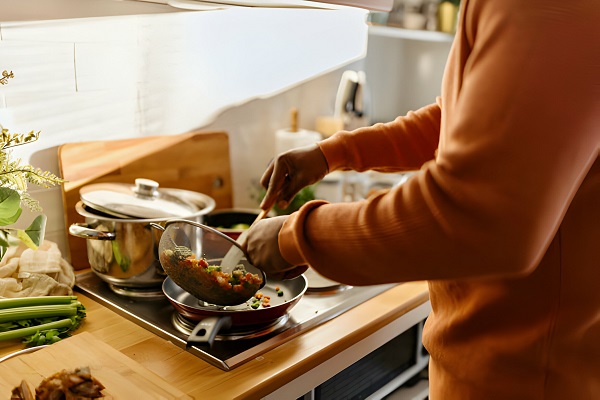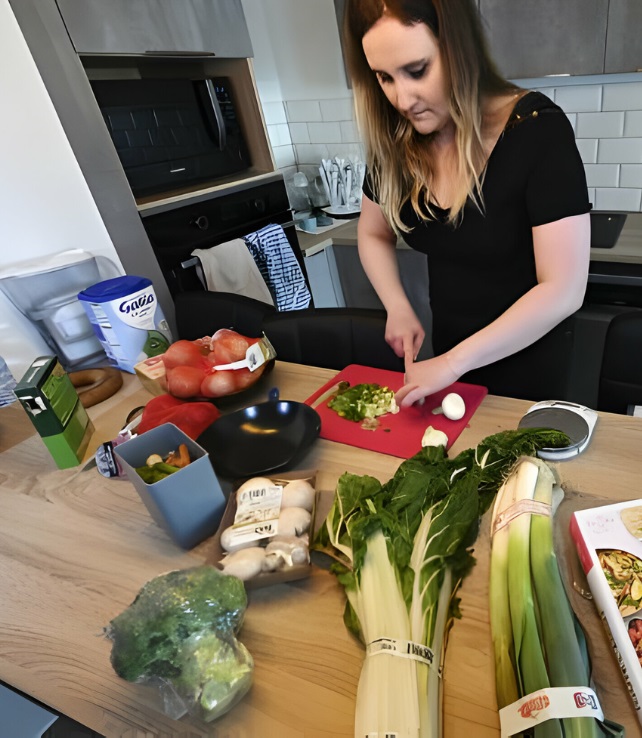Last Updated on January 2, 2025 by Emma
In today’s fast-paced world, finding time to cook nutritious meals for your family every day can be a challenge. This is where the concept of batch cooking, also known as meal prepping, comes into play as a lifesaver for many. Batch cooking is the practice of preparing and cooking meals or meal components in bulk, which can then be stored to ease the burden of daily cooking. This approach not only saves time but also ensures that you and your family enjoy homemade, healthful meals throughout the week. Here, we explore the basics of batch cooking and share tips to make your meal prep both efficient and enjoyable.

Batch Cooking
Batch cooking involves dedicating a few hours during the week, usually on the weekend, to prepare, cook, and store a variety of meals that can be quickly assembled or reheated throughout the week. It’s an effective strategy for anyone looking to manage their time better, reduce food waste, and stick to a healthier eating plan.
Planning is Key
Menu Planning
Start by planning your menu for the week. Consider each meal – breakfast, lunch, dinner, and even snacks. Aim for a mix of protein, vegetables, and carbohydrates to ensure balanced nutrition. Don’t forget to take into account your family’s preferences and any dietary restrictions.
Shopping List
Once your menu is set, create a detailed shopping list. This list should be organized by store sections (produce, dairy, meats, etc.) to make your shopping trip more efficient. Stick to your list to avoid impulse buys that can derail your meal plan.
Efficient Cooking Strategies
Multi-tasking in the Kitchen
Make the most of your time in the kitchen by multitasking. While something is baking in the oven, you could be chopping vegetables or cooking grains on the stove. Using multiple kitchen appliances like slow cookers, pressure cookers, and rice cookers simultaneously can save time.
Cook Once, Eat Twice (or More)
Prepare ingredients that can be used in multiple recipes. For instance, a batch of quinoa can be a side for one meal, a salad base for another, and an addition to soups or stews. Cooked proteins like chicken, beef, or tofu can also be seasoned and used in different ways throughout the week.
Storage and Preservation
Cooling and Storing
It’s crucial to let food cool to room temperature before storing it to prevent moisture buildup and bacterial growth. Use airtight containers to keep your food fresh. Labeling containers with the contents and date will help you keep track of what’s available and ensure nothing goes to waste.
Freezing for Longevity
Not all meals are meant to be eaten within a week. Some can be frozen for longer storage. Soups, stews, casseroles, and even cooked grains and proteins freeze well. Thawing these meals can make for an easy dinner on particularly busy nights.
Making the Most of Leftovers
Get creative with leftovers. A roast chicken can become a chicken salad, chicken tacos, or a chicken soup base. Vegetables from last night’s dinner can be repurposed into a stir-fry or omelet. This not only reduces food waste but also adds variety to your meals.
Health and Safety Considerations
Food safety is paramount when batch cooking. Follow proper food handling and storage guidelines to prevent foodborne illnesses. This includes cooking foods to the right temperature, storing foods in the refrigerator or freezer within two hours of cooking, and reheating foods to the correct temperature before consumption.
Involving the Family
Make meal prepping a family activity. Getting children involved in meal planning and preparation can teach them valuable life skills and help them develop healthier eating habits. Plus, spending time together in the kitchen can be a fun and rewarding experience for the whole family.

Flexible Meal Components
Instead of cooking full meals, consider preparing versatile meal components. This could include roasted vegetables, grilled proteins, and whole grains. These components can be mixed and matched to create different meals, giving your family variety without extra cooking time.
The Role of Technology
Take advantage of technology to streamline your meal prep. Numerous apps and online tools can help with meal planning, creating shopping lists, and even providing recipe ideas. Some tools also offer nutritional information, helping you keep your meals balanced and healthful.
Embrace the Process
While the idea of spending a chunk of your weekend cooking might seem daunting at first, many find the process therapeutic and satisfying. There’s a sense of accomplishment in knowing you’ve prepared your family for a week of healthy, stress-free meals. Remember, efficiency comes with practice. As you get into the rhythm of batch cooking, you’ll find shortcuts and develop techniques that work best for you.

